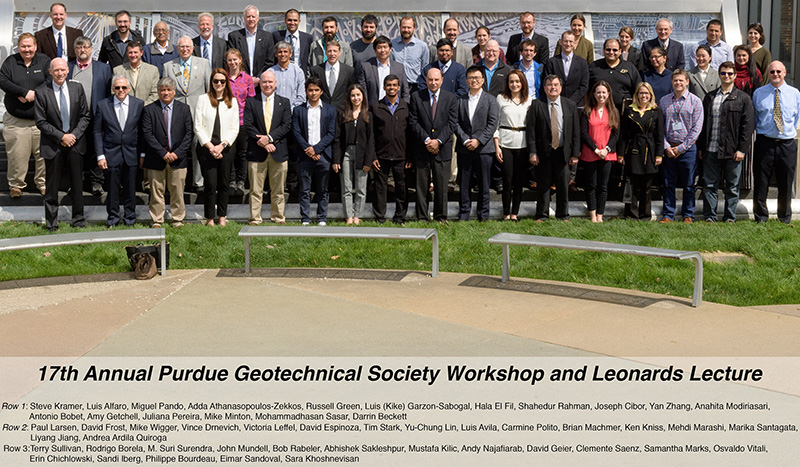2019 PGS Workshop & 17th G.A. Leonards Lecture
April 26, 2019 - 5:00 p.m.
Krannert Auditorium, Purdue University
West Lafayette, IN
Performance-Based Geotechnical Seismic Design
Video of Lecture | Lecture Slides
Steven L. Kramer
Professor of Geotechnical Engineering
University of Washington
The use of performance-based concepts for seismic design has increased greatly over the past 20 years. The performance-based approach is based on the idea that structures and facilities can now be designed and constructed in such a manner that their performance under anticipated seismic loading can be predicted with acceptable accuracy. The large uncertainties involved in characterizing anticipated ground motions, along with those associated with prediction of system response, physical damage, and losses have led most approaches to performance-based geotechnical design to be formulated in probabilistic terms, although the probabilistic approach is not absolutely required, and not consistently used in current practice, at least in the United States. Performance-based design of structures and facilities can be accomplished in many different ways. In this lecture, the term “structures” will be used in a generic sense to describe systems that could include buildings and bridges, but also earth structures such as embankments, levees, earth dams, natural slopes, foundations, etc. The lecture will review probabilistic geotechnical response prediction methods, explore alternative approaches to performance-based design, discuss their implementation in practice, and show how their benefits can be realized in a framework that most practitioners are already familiar with.
Introduction by Vincent Drnevich, Purdue University
Professor Steven L. Kramer received his B.S., M.Eng., and Ph.D. degrees from the U.C. Berkeley in 1977, 1979, and 1985, respectively, and joined the geotechnical group in the University of Washington Department of Civil Engineering in 1984. His primary research interests include soil liquefaction, site response analysis, seismic slope stability, and hazard analysis. Kramer has been the recipient of the Presidential Young Investigator Award from the National Science Foundation, the Arthur Casagrande Professional Development Award from ASCE, a Walter Huber Research Prize from ASCE, and the ASCE Norman Medal (in 2009 and 2017). He received the 2016 M.J. Nigel Priestley Prize from the European Centre for Training and Research in Earthquake Engineering, the 2018 H. Bolton Seed Medal by ASCE, and the 2018 Nabor Carillo Lecture award from the Mexican Society of Geotechnical Engineering. Kramer is the author of the book Geotechnical Earthquake Engineering and co-developer of the computer programs, ProShake and WSliq. He has served as a consultant to private firms and government agencies on projects in the U.S. and abroad. He has consulted on high-rise structures and bridges in seismically active areas and served on consulting boards for nuclear waste treatment plants, nuclear reactors, dams, seawalls, levees, underground structures, and offshore structures/facilities.
Presented in conjunction with the 17th Purdue Geotechnical Society Workshop - "Geotechnics of Natural Hazards"
2019 Workshop Program | Event Photos

Support for the PGS Workshop and Leonards Lecture is provided by the following sponsors:

